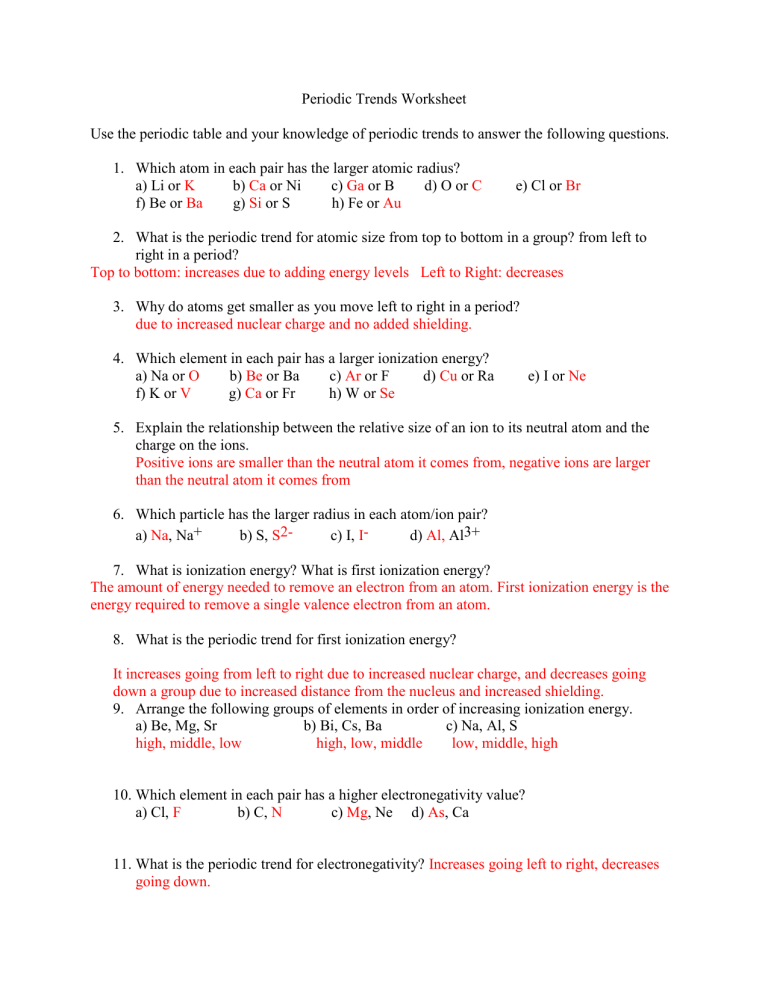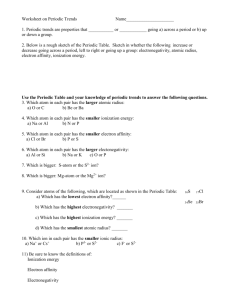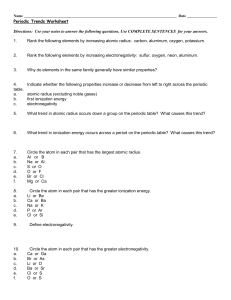Periodic Trends Worksheet: Atomic Radius, Ionization Energy
advertisement

Periodic Trends Worksheet Use the periodic table and your knowledge of periodic trends to answer the following questions. 1. Which atom in each pair has the larger atomic radius? a) Li or K b) Ca or Ni c) Ga or B d) O or C f) Be or Ba g) Si or S h) Fe or Au e) Cl or Br 2. What is the periodic trend for atomic size from top to bottom in a group? from left to right in a period? Top to bottom: increases due to adding energy levels Left to Right: decreases 3. Why do atoms get smaller as you move left to right in a period? due to increased nuclear charge and no added shielding. 4. Which element in each pair has a larger ionization energy? a) Na or O b) Be or Ba c) Ar or F d) Cu or Ra f) K or V g) Ca or Fr h) W or Se e) I or Ne 5. Explain the relationship between the relative size of an ion to its neutral atom and the charge on the ions. Positive ions are smaller than the neutral atom it comes from, negative ions are larger than the neutral atom it comes from 6. Which particle has the larger radius in each atom/ion pair? a) Na, Na+ b) S, S2c) I, Id) Al, Al3+ 7. What is ionization energy? What is first ionization energy? The amount of energy needed to remove an electron from an atom. First ionization energy is the energy required to remove a single valence electron from an atom. 8. What is the periodic trend for first ionization energy? It increases going from left to right due to increased nuclear charge, and decreases going down a group due to increased distance from the nucleus and increased shielding. 9. Arrange the following groups of elements in order of increasing ionization energy. a) Be, Mg, Sr b) Bi, Cs, Ba c) Na, Al, S high, middle, low high, low, middle low, middle, high 10. Which element in each pair has a higher electronegativity value? a) Cl, F b) C, N c) Mg, Ne d) As, Ca 11. What is the periodic trend for electronegativity? Increases going left to right, decreases going down.

